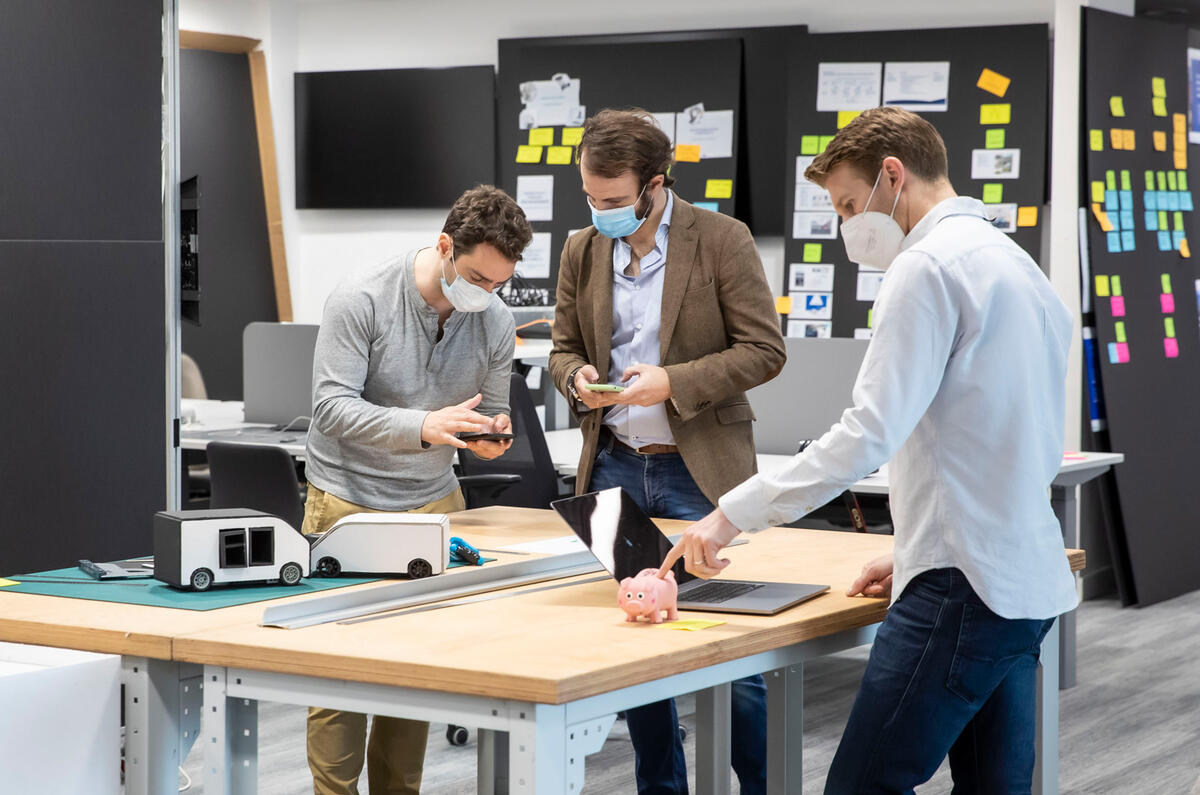Probably the closest thing you can make to a battery cell in the UK at the moment is a KitKat.”
It’s an eye-widening comparison from Steve Doyle, CEO of Evera Recruitment, and it illustrates the extent to which the automotive industry is being shaken up: if a car maker wants to attract the best talent in its push towards electrification, it needs to look at food processing engineers.
In its constituent parts, the analogy starts to make sense. “I broke the production line down into pieces and looked at the lithium powder mixing section,” explains Doyle. “And I realised that’s very similar to what Nestlé is doing with its KitKat line. Then I looked at the coating section, which is really similar to something that’s going on in the printing industry, the way that they use slot dye to put the pastes on foils. And then in the electrolyte-filling section of the production line, I found a company that was putting soya sauce into sachets for sushi restaurants. Look for near-neighbour skills.”
To receive the latest industry news, please click here to sign up to the Autocar Business newsletter
What it illustrates are the challenges facing OEMs in the age of the digital transformation. Not only do they have to contend with rapidly changing market requirements but they also face considerable uphill battles to recruit – and retain – the best brains. As Astrid Fontaine, Bentley’s member of the board of management for people, digitalisation and IT, points out: “There are skills that can cross the border of any kind of company – skills regarding data analytics, app development, software development.”
Doyle has been tasked by Lotus and others to widen their talent pool as the big, traditional OEMs – the ‘legacy’ manufacturers – look to expand in the world of electrification. Recruitment is going through huge changes, something Doyle has been conscious of for a while. “What’s coming in the future is more relevant than ever,” he says. “I’ve been trying to shout from the rooftops for a long time, but we’re walking into a skills shortage.”
And no wonder, when you look at how companies are expanding. Lotus Engineering will move to a new advanced technology centre in Wellesbourne, in partnership with the nearby University of Warwick, while McLaren has built a £50 million composites facility in Sheffield and Rimac has created 30 new roles (with more likely to come) in Warwick at its R&D facility. Meanwhile, Britishvolt is hoping to build a £2.6 billion battery factory in the north-east of England. And that’s to name just a few. Great news for UK plc, and it comes with considerable implications for current and future graduates.
“We’ve got very, very strong technology [knowledge] in the UK but we’ve never been able to scale it up,” continues Doyle. Previously, graduates would benefit from the UK’s excellent university programmes but then find limited outlets for their work within the UK once they had left university.
According to Doyle, that is now changing: “We have the battery knowledge here – Oxford, Imperial and various other universities have incredible battery departments – but what Britishvolt allows us to do is [take that] creative, innovative science that we come up with in the UK and, rather than it going abroad to be made in someone else’s factory, we’ve got an opportunity to pipeline that into a UK company.”

Car manufacturers are dealing with the skills shortage in different ways. At Bentley, training internally is important, according to Fontaine: “We know there are a lot of kids out there that might not be able to afford a fully fledged university degree. We decided to set up digital apprenticeships. We need software developers and app developers. These skills are rare, so we’re trying to build them up by getting the kids that love to work with this stuff into the tech field. It works really well.”
In 2019 Ford launched D-Ford, a ‘human-centred’ design area of the company that aims to shake up how the company mothership not only views the world but also how it operates; it’s a forward-looking department that’s attempting to predict what’s coming in five to 10 years’ time.
Usha Raghavachari is innovation lab director at D-Ford in London, Melbourne and São Paulo. She said: “100% of my [external] hires have come from outside the automotive industry. We’re moving from this very industrial, hardware-focused offering to thinking about software services, and that whole ecosystem that we’re designing for our customers.
To do that, we need folks with very different skill sets. I’ve got 200,000 car people already inside the company, and they’re very capable, very accomplished and generally brilliant, in lots of different ways. We need people with digital backgrounds.”
However, as car manufacturers look to expand, it’s not just a skills shortage headwind they face. There are also huge challenges around attracting the brightest minds in the first place, because automotive start-up companies can offer an attractive, alternative proposition to the best graduates. While OEMs can give the reassurances of a 100-year-old company, they can’t compete with the new-kid-on-the-block vibe that the more youthful, less bureaucratic start-ups bring.
Remuneration isn’t the only driver nowadays, as Doyle explains: “There isn’t an HR director in the country who hasn’t looked at the benefits package and the rewards. That’s a given: salaries are competitive and packages are competitive.”
According to Doyle, it’s the OEM’s customs that need to change. “The culture within a business is something that OEMs really need to look at.”
OEMs aren’t completely without their own recruitment firepower, though. In days gone by, departments like D-Ford might have been thought of as a skunkworks area, with engineers beavering away after-hours and over weekends to deliver fanciful project cars. But with D-Ford, this is brought much more in-house, to give the reassurance of Ford coupled with the edge of a start-up.
“We have one foot inside the company and one foot outside,” says Raghavachari. “Bringing in that external perspective is absolutely essential because of the pace of change in digital data.”
At Ford, employees have a vast, multinational corporation behind them, with a real chance to “make a difference to millions of consumers all over the world”. Bentley, meanwhile, is part of the Volkswagen Group. This, says Fontaine, gives new recruits “the power of this huge, 660,000 [employee] company in the background and easily be able to see the internal job postings. To be able to move between the brands has a high appeal.” And thanks to the relatively compact size of Bentley (for an OEM), the apprentices have a direct line to Fontaine, who is a member of the board.
What is clear is that the best minds are key to the survival of all these companies. As Fontaine points out: “It’s a people-driven strategy for us. Without people, who are we? Just the empty legal shell. So it’s always about our people. They are the ones that are making Bentley. They are the ones that bring the craftsmanship and the skills and the ideas.”
Can the big OEMs ever compete with the start-ups? A last word to Doyle: “The OEMs don’t have a choice. They have to cut through the bureaucracy and develop quickly because the brand loyalty will wane.
There’s a phrase I like: it’s not the big fish that eats the small fish; it’s the fast fish that eats the slow fish. And I think there has probably never been a time when that is more apt to the automotive industry than now.”
READ MORE
Call for UK to address EV skills shortage before 2030











Join the debate
Add your comment
Nice Car with health care and safety features. Dont use Weed and Drugs in car its harmful for health.
if you want to buy drugs for your health and boost up your body building then visit our website
IR35 is a calamity and has been poorly interpreted by almost all OEMs. The lack of flexible employment prevents transient staffing, which given 36 month programme cycles is a key factor in preventing those of us who can, from accepting D&D hourly rates that were uncomprtitive 20 years ago. More money to be made on the tools than in the DO.